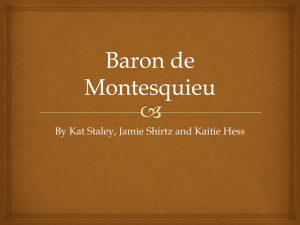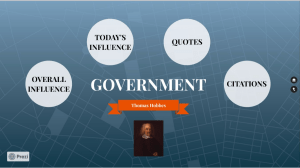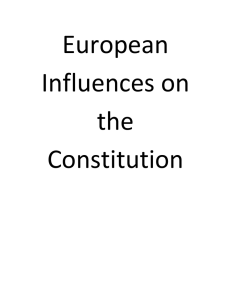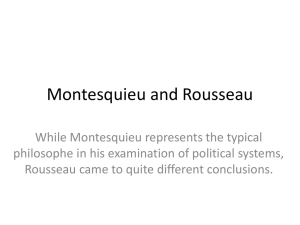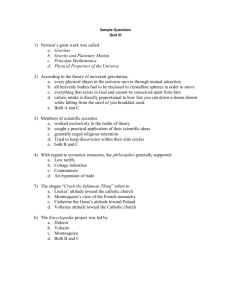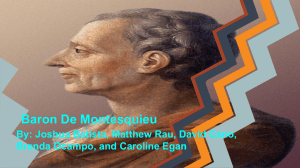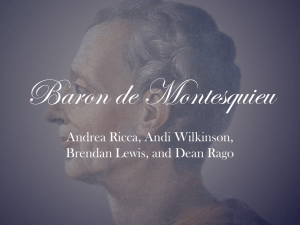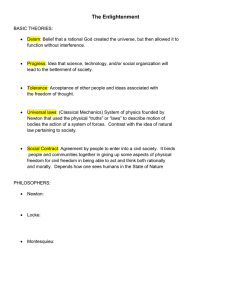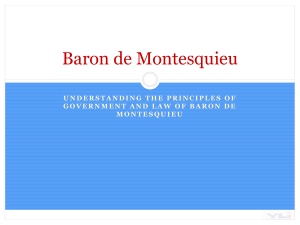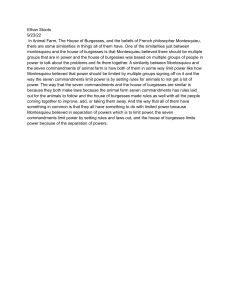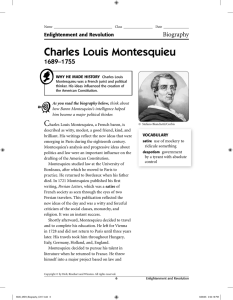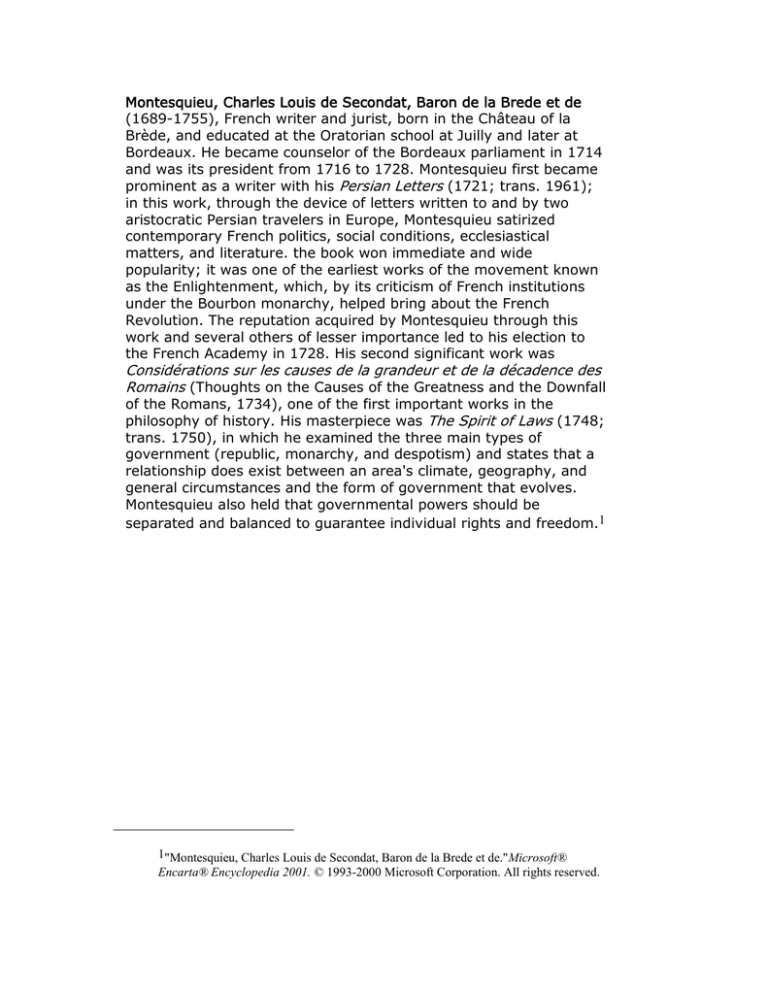
Montesquieu, Charles Louis de Secondat, Baron de la Brede et de
(1689-1755), French writer and jurist, born in the Château of la
Brède, and educated at the Oratorian school at Juilly and later at
Bordeaux. He became counselor of the Bordeaux parliament in 1714
and was its president from 1716 to 1728. Montesquieu first became
prominent as a writer with his Persian Letters (1721; trans. 1961);
in this work, through the device of letters written to and by two
aristocratic Persian travelers in Europe, Montesquieu satirized
contemporary French politics, social conditions, ecclesiastical
matters, and literature. the book won immediate and wide
popularity; it was one of the earliest works of the movement known
as the Enlightenment, which, by its criticism of French institutions
under the Bourbon monarchy, helped bring about the French
Revolution. The reputation acquired by Montesquieu through this
work and several others of lesser importance led to his election to
the French Academy in 1728. His second significant work was
Considérations sur les causes de la grandeur et de la décadence des
Romains (Thoughts on the Causes of the Greatness and the Downfall
of the Romans, 1734), one of the first important works in the
philosophy of history. His masterpiece was The Spirit of Laws (1748;
trans. 1750), in which he examined the three main types of
government (republic, monarchy, and despotism) and states that a
relationship does exist between an area's climate, geography, and
general circumstances and the form of government that evolves.
Montesquieu also held that governmental powers should be
separated and balanced to guarantee individual rights and freedom.1
1"Montesquieu, Charles Louis de Secondat, Baron de la Brede et de."Microsoft®
Encarta® Encyclopedia 2001. © 1993-2000 Microsoft Corporation. All rights reserved.

